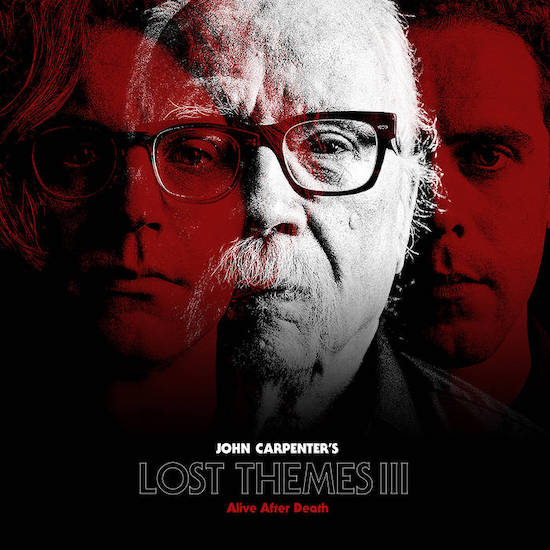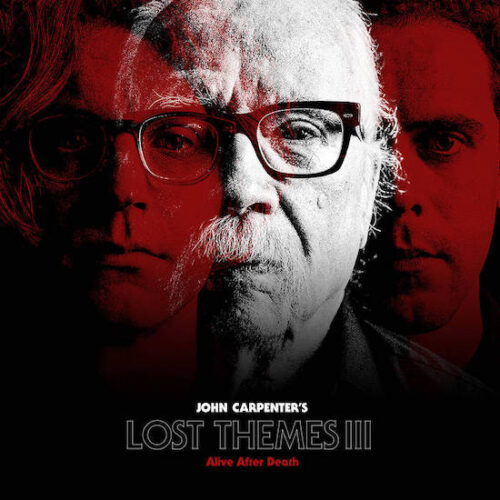Considering that a filmmaker’s creative concerns are similar to the ones that come up when stitching together a solid album, you wouldn’t expect the shift from film to music to be such a big jump. In reality, the list of successful directors turned musicians is a relatively short one. While a few directors have had a good go at it (David Lynch, Charlie Chaplin), John Carpenter has been transmitting his visions through music since the late 70s. After tinkering and perfecting his signature sound with the assistance of his son Cody and godson Daniel Davies over the course of the Lost Themes series, Carpenter has arguably made his definitive statement as a musician in the form of Lost Themes III: Alive After Death.
While Michael Myers has become an icon in his own right, sitting next to him or possibly above him is the Halloween theme song, a piece of music that expressed the dark lexicon that the mute Myers could never utter. With a few simple keystrokes it let you know in no uncertain terms that there was something out there. In Alive After Death, the unholy trinity of Carpenter, Cody and Davies have made a whole record letting you know something is out there, and the beauty of the record – as opposed to Carpenter’s films – is that whatever there is out there, it’s yours and yours alone to find. In the process of untethering the music from established characters and franchises, Carpenter’s Lost Themes find their home solely in the mind of the listener. In the privacy of that internal cinema the audience has the choice to get in their own director’s chair – or simply be swept along by the currents and get lost in the twilight zone.
In the opener ‘Alive After Death’, John and Cody signal that something malevolent is in close proximity with the simple yet ominous melody that forms the pulse of the track. The trepidation eventually mellows out before the track gets possessed by Davies’ wailing chords that sound like musical tongues screaming into the void. From the outset you can tell the three of them have formed a triangle of unspoken understanding, a single cell with Carpenter as the electrically-charged nucleus. Under his directorial eye, the songs gather and layer elements piece by piece like the unveiling of a moon behind clouds While the whole album treads familiar spooky roads, it also branches off into other winding places that open up new landscapes for you to let your imagination loose in.
In ‘The Dead Walk’ organs and gothic samples take the audience through dank catacombs and musty churches, before Davies kicks in with his guitar, raising the stakes and keeping the blood pumping. In one of the greatest moments of the album the song takes a dip half-way through, offering a moment for the chased victim in your mind to breathe before the trio suddenly reload their parts in full showstopping intensity. Then there is the bounce between sombre murmurs and high-tempo synth repetitions in ‘Weeping Ghost’ that feels like refracted light hitting you from every angle in a maze of mirrors. It’s tempting to go on and just describe the scenes that every track inspires – and that is where the strength of the music lies, in its effortless ability to provoke such vivid imagery.
The fact of the matter is that Carpenter, Cody and Davies have united to form an extremely tight, polished and powerful piece of thematic music with the third volume of Lost Themes. With much less to focus on then a full-length feature Carpenter really elevates and draws the most out of the fewer ingredients he works with and in doing so, truly distils the essence of his craft.



